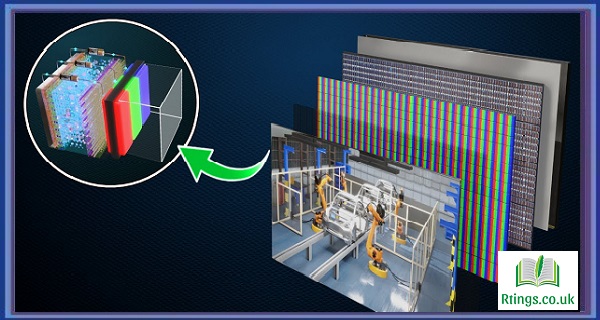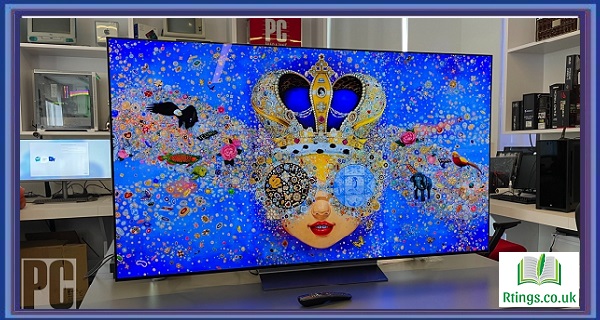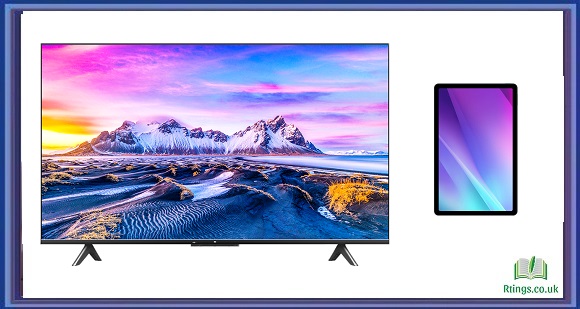With rapid technological advancements, 4K TVs have become increasingly popular, offering stunning visuals and lifelike picture quality. However, while 4K TVs deliver impressive visuals, their built-in speakers often need to improve when providing high-quality audio. This raises the question: Do you need a soundbar with a 4K TV? In this article, we will delve into the advantages of using a soundbar with a 4K TV and help you decide whether investing in one is worth it.
The Limitations of Built-in TV Speakers
Most 4K TVs prioritize slimness and aesthetics over audio quality, resulting in speakers that are often small and underpowered. These built-in speakers may need more depth, clarity, and immersive sound, leading to a subpar audio experience. Considering that sound enhances our viewing experience, exploring alternatives to built-in TV speakers becomes essential.
Enhanced Audio Experience
A soundbar is a compact and versatile audio solution that can significantly enhance the audio output of your 4K TV. Using advanced audio technologies and multiple speakers placed strategically within a single unit, soundbars can deliver immersive sound, filling your room with rich and detailed audio. This ensures that you enjoy captivating visuals and a well-rounded audio experience that complements the on-screen action.
Soundbar Features and Functionality
Modern soundbars come equipped with a variety of features that further enhance the audio experience. These features include virtual surround sound, dialogue enhancement, equalizer settings, and adjustable bass levels, allowing you to customize the audio output to suit your preferences. Some soundbars even offer compatibility with voice assistants, wireless connectivity, and multi-room audio setups, adding convenience and versatility to your entertainment system.
Immersive Home Theater Experience
If you crave a cinematic experience within the comfort of your home, a soundbar can be a game-changer. Many soundbars support advanced audio formats, such as Dolby Atmos and DTS:X, which provide three-dimensional sound, creating a realistic and immersive environment. With the soundbar’s ability to bounce sound off walls and ceilings, you can enjoy the sensation of sound coming from different directions, heightening your movie-watching experience and making you feel like you’re in the middle of the action.
Improved Dialogue Clarity
One common issue with built-in TV speakers is the clarity of dialogue, especially during fast-paced scenes or moments with background noise. Soundbars often include dialogue enhancement features that isolate speech frequencies and optimize them for improved intelligibility. This ensures you can experience important dialogue or struggle to understand conversations, making movies, TV shows, and even news broadcasts more enjoyable.
Space and Aesthetic Considerations
In addition to their audio prowess, soundbars offer practical advantages in space and aesthetics. Unlike traditional surround sound systems, which require multiple speakers placed around the room, a soundbar is a single unit that can be conveniently placed below or above your TV. This saves valuable space and eliminates additional wiring or mounting equipment. Soundbars also come in sleek designs that blend seamlessly with modern TV setups, adding a touch of elegance to your living space.
Budget-Friendly Solution
Compared to investing in a full-fledged surround sound system, soundbars provide a more cost-effective solution for improving your audio experience. While prices can vary depending on the brand, features, and audio quality, soundbars are generally more affordable and accessible to a wider range of consumers. This affordability, combined with their significant audio improvements, makes soundbars an attractive option for those seeking enhanced audio without breaking the bank.
Conclusion
While 4K TVs excel in delivering stunning visuals, their built-in speakers often leave a lot to be desired. Investing in a soundbar is highly recommended to elevate your viewing experience and create an immersive atmosphere. Soundbars provide enhanced audio quality, improved dialogue clarity, and a range of features that optimize the audio output to match the visual excellence of a 4K TV. Furthermore, they offer space-saving advantages and a budget-friendly alternative to elaborate surround sound systems. So, if you want to make the most of your 4K TV and create a captivating audio-visual experience, a soundbar is worth considering.
Frequently Asked Questions (FAQs)
How do I connect a soundbar to my 4K TV?
Connecting a soundbar to your 4K TV is a straightforward process. Most soundbars offer various connectivity options, such as HDMI ARC (Audio Return Channel), optical audio, or Bluetooth. Here’s a general step-by-step guide:
HDMI ARC: Check if both your TV and soundbar have an HDMI ARC port. Connect one end of an HDMI cable to your TV’s ARC port and the other to your soundbar’s ARC port. Make sure to enable the HDMI ARC function in your TV’s settings.
Optical Audio: You can use an optical audio cable if your soundbar and TV don’t have HDMI ARC ports. Connect one end of the cable to your TV’s optical audio output and the other to your soundbar’s optical input.
Bluetooth: If your soundbar supports Bluetooth, you can wirelessly pair it with your 4K TV. Activate the Bluetooth function on both devices and follow the pairing instructions provided by the manufacturer.
Can any soundbar work with a 4K TV?
In general, any soundbar can work with a 4K TV as long as it offers compatible connectivity options. However, it’s essential to consider certain factors to ensure optimal performance. Look for soundbars supporting the latest audio formats, such as Dolby Atmos and DTS:X, to experience immersive three-dimensional sound. Additionally, check if the soundbar has sufficient power and audio features to enhance your viewing experience. Compatibility information can be found in the soundbar’s specifications or by consulting the manufacturer’s guidelines.
Do I need a separate subwoofer with a soundbar for my 4K TV?
The need for a separate subwoofer depends on your preference and your specific soundbar. While many soundbars come with built-in subwoofers or include bass-enhancing technologies, a separate subwoofer can enhance low-frequency sound reproduction, adding depth and impact to your audio experience. A dedicated subwoofer can significantly improve your overall satisfaction if you enjoy watching action movies or listening to bass-heavy music. However, it’s worth noting that some soundbars offer an “all-in-one” design that combines the soundbar and subwoofer in a single unit, providing a space-saving solution without sacrificing audio performance. Consider your audio preferences, budget, and available space when deciding whether to invest in a separate subwoofer for your soundbar.






